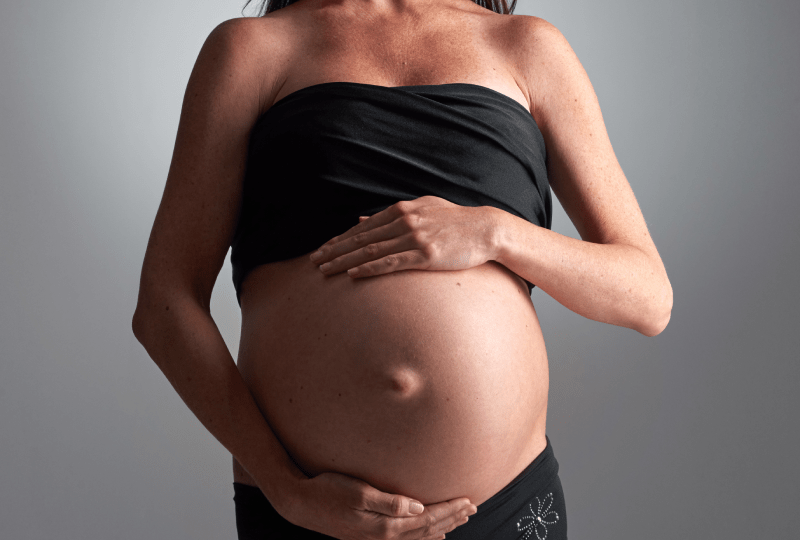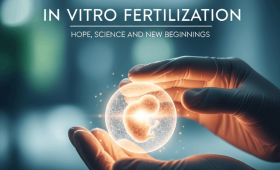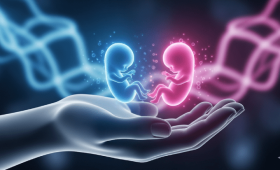Can A 50 Years Old Woman Have A Baby?
A 50-year-old woman’s chance of having a baby naturally or through in vitro fertilization (IVF) using her own eggs is quite low because the ovarian reserve is nearly depleted and the quality of the remaining eggs is severely compromised. However, thanks to egg donation treatment, women aged 50 and over can also experience a healthy pregnancy. This treatment involves using eggs retrieved from a young and healthy donor. The most important criterion for pregnancy over the age of 50 is that the expectant mother’s general health condition is adequate to carry the pregnancy. Therefore, a comprehensive health screening is mandatory before starting the process.
What Exactly Is Egg Donation?
Egg donation is the process where eggs retrieved from a young and healthy woman (donor) are fertilized with the prospective father’s sperm in a laboratory environment to create an embryo, and this embryo is then transferred into the uterus of the prospective mother (recipient). This method offers a high chance of success, especially for women over 40, those with insufficient ovarian reserve, or those carrying genetic diseases. Thanks to donation, while a genetic link is established with the baby’s father, the mother-to-be also gets to experience the pregnancy in her own body. This process requires meticulously planned hormonal preparation.
What Are The Risks Of Pregnancy Over The Age Of 50?
Pregnancies at the age of 50 and above carry some additional risks for both the mother and the baby. The mother-to-be faces increased risks of high blood pressure (preeclampsia), gestational diabetes, and premature birth. Furthermore, the likelihood of delivery via C-section increases. For the baby, the risks include low birth weight, premature birth, and sometimes developmental delay. Therefore, pregnancies over 50 are considered “high-risk,” and it is essential to have very strict monitoring from the start of treatment to take precautions against potential complications.
How Is Egg Donation Treatment Applied?
Egg donation treatment consists of several stages. First, the recipient mother’s uterus is prepared with hormonal medications for the embryo to implant. Simultaneously, the selected donor is stimulated to develop eggs. After the eggs are retrieved from the donor, they are fertilized with the prospective father’s sperm in the laboratory. The resulting embryos are monitored for 3 to 5 days, and the healthiest one is transferred to the inner lining of the recipient mother’s uterus (endometrium). After the transfer, the expectant mother must rest for a while for the embryo to implant.
What Is The Chance Of Pregnancy With Egg Donation?
The chance of pregnancy with egg donation is quite high because it depends not on the recipient’s age but on the donor’s young age and the quality of her eggs. When using young donor eggs, the success rates per pregnancy generally range between 60% and 70%. This high rate provides a great advantage, especially compared to treatments attempted by women over 40 using their own eggs. Optimizing uterine health and hormonal balance before the transfer is critical to maximizing the chance of success.
What Factors Affect The Success Rate Of Donor Eggs?
The most important factors affecting success with donor eggs include the donor’s age and the quality of her eggs. Generally, eggs from donors between the ages of 21 and 30 are preferred. Other factors influencing success are the laboratory’s embryo culture technology, the embryologist’s experience, and the quality of the transferred embryo. Furthermore, the recipient mother’s uterine health, the uterus’s ability to accept the embryo, and the accuracy of hormonal monitoring directly affect the outcome. Comprehensive screening before treatment helps to optimize these factors.
How Is The Donor Selected In Egg Donation Treatment?
Donor selection is one of the most critical stages of the treatment process. Families can choose the donor’s distinct characteristics, such as physical features (eye color, hair color, height, weight) and ethnic background, to be as close as possible to their own. Donors undergo comprehensive medical, psychological, and genetic screenings to ensure they do not carry infections or hereditary diseases. The donor’s identity is kept confidential from the recipient family (anonymous donation), but basic health and physical characteristic information is shared.
Which Age Range Is Preferred For Donor Eggs?
To maintain a high success rate in egg donation treatment, it is generally preferred that the women selected as donors are between the ages of 21 and 30. Eggs from women in this age range tend to be genetically healthier, and the risk of chromosomal abnormalities is low. The donor’s young age helps ensure the quality of the eggs, which provides a high chance of pregnancy regardless of the recipient mother’s age. Young donor eggs have a higher potential for embryo development and implantation.
What Are The Possible Complications Seen In 50 Years Old Pregnancies?
In 50-year-old pregnancies, the risks of serious complications such as gestational diabetes, preeclampsia (pregnancy poisoning), and placenta previa (placenta blocking the birth canal) are higher. Additionally, the risk of premature birth and consequently low birth weight in the baby increases. Very strict pregnancy monitoring is essential for the early detection and management of these complications. Detailed examination of the mother’s cardiovascular health before pregnancy and adopting a multidisciplinary approach to minimize all risks are vital.
In Which Countries Is Egg Donation Legally Applied?
Egg donation treatment is subject to legal regulations that vary from country to country. It is legally practiced with a wide donor pool in some states of the United States, and in countries such as Spain, Greece, and Northern Cyprus. These countries are frequently preferred by international patients due to the anonymity they offer, high success rates, and relatively affordable costs. Before choosing a country for treatment, the legal conditions, process transparency, and recipient rights should be examined in detail.
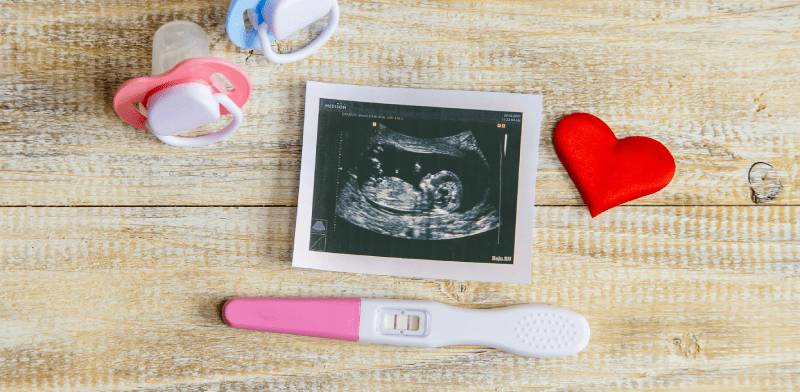
How Is Anonymity Ensured In Donation Treatment?
Anonymity in egg donation treatment means that the donor’s identity is strictly not disclosed to the recipient family, and similarly, the recipient family’s identity is not given to the donor. This is a legal protection mechanism and is implemented with strict rules in most countries. Only the donor’s physical characteristics (height, weight, eye color, education level) and general health information are conveyed to the recipient family. This anonymity secures the rights and privacy of both parties, allowing families to focus on the treatment with peace of mind.
What Tests Should Be Done Before Treatment?
Before starting egg donation treatment, comprehensive tests are requested for both the recipient mother and the prospective father. The mother-to-be is asked for detailed ultrasound and blood tests to check her uterine health (uterus structure, endometrial thickness) and hormone levels. The prospective father’s sperm quality and count are determined. For expectant mothers over 50, additional screenings for systemic diseases that may affect pregnancy, such as heart health, blood pressure, and diabetes, are mandatory.
How Much Is The Cost Of Egg Donation Treatment?
The cost of egg donation treatment varies significantly depending on the country where it is applied, the quality of service of the center, and the package content. Generally, costs can range between 5,000 Euros and 15,000 Euros. This price includes basic procedures such as the donor’s fee, donor’s medication costs, egg retrieval procedure, fertilization, and embryo transfer. However, additional services such as the recipient mother’s own medication costs, genetic tests, or embryo freezing are usually added separately to the total cost.
What Are The Main Factors Affecting The Costs?
The most important factors affecting the cost of egg donation are the freshness of the donor (fresh donation is more expensive), the number of embryos to be transferred, whether genetic diagnosis testing (PGT) is performed, and the characteristics of the donor. Some centers may charge higher fees for donors with special characteristics. Additionally, the cost of medications used for the recipient mother’s uterine preparation, accommodation, and travel expenses significantly increase the total budget. During this planning process, organizations like Cure Holiday can offer you travel and accommodation solutions to support you with cost and organization.
How Long Does The Treatment Process Take?
The active process of egg donation treatment involves the stages of the recipient mother’s uterine preparation and embryo transfer. Hormonal preparation usually takes 2 to 4 weeks, and this process can begin in the recipient’s home country. The time the mother-to-be needs to travel to the treatment center’s country for the transfer and stay there is usually around 7 to 10 days. The egg retrieval from the donor and the fertilization procedures are completed during this travel period. The total process may slightly vary according to individual response.
When Do Pregnancy Symptoms Start After Transfer?
Pregnancy symptoms after embryo transfer can appear at a time that varies from person to person, due to the effect of hormonal medications and the embryo beginning to implant in the uterus. Some women may feel slight breast tenderness, fatigue, or mild cramping a few days later. However, these symptoms can also be a side effect of the hormonal medications used. For definitive detection of pregnancy, a blood pregnancy test (Beta-hCG) must be done 10-12 days after the transfer. It is a healthier approach to wait for this test instead of focusing on early symptoms.
Is Pregnancy With Donation Different From Normal Pregnancy?
No, pregnancy achieved with egg donation is biologically no different from a normal pregnancy achieved with the mother’s own egg. Although the baby’s genetic heritage belongs to the father and the donor, the mother-to-be is the one who carries the pregnancy and nourishes the baby. Hormonal changes, physical symptoms, and the birth process are completely the same as a normal pregnancy. The difference in 50-year-old pregnancies is the need for stricter monitoring of the additional risks arising from the mother’s age.
What Is The Difference Between Surrogacy And Egg Donation?
Surrogacy and egg donation are two different assisted reproductive technologies. In egg donation, genetically unrelated eggs are used, but the mother-to-be carries the pregnancy herself. In surrogacy, both the egg and sperm may belong to the genetic parents, but the pregnancy process is carried out by another woman (the surrogate mother). Surrogacy is an option for women who have uterine problems or for whom carrying a pregnancy poses a health risk. Surrogacy involves more complex legal processes than egg donation.
Why Might Traveling Abroad For Treatment Be Advantageous?
Traveling abroad for IVF and egg donation treatment can offer significant cost advantages, especially compared to the high costs in countries like the United States. Additionally, some countries (such as Northern Cyprus) may be more legally flexible regarding donation and have wider donor pools. Couples undergoing treatment abroad may also find the opportunity to combine the treatment with a vacation and rest period. You can contact Cure Holiday for travel planning and accommodation to simplify the process.
What Medications Are Used In Donation Treatment?
The medications used in egg donation treatment are fundamentally aimed at preparing the recipient mother’s uterus for embryo transfer. These medications include estrogen and progesterone hormones, which are used to thicken the inner lining of the uterus (endometrium) and make it suitable for the embryo to implant. These hormones are usually administered via tablets, vaginal gel, suppositories, or injections. These medications continue to be used in the early stages of pregnancy to provide uterine support.
How Are The Health Screenings Of Donors Performed?
Egg donors undergo very comprehensive health screenings for the safety and success of the treatment. These screenings include checks for infectious diseases (HIV, Hepatitis B/C, etc.), genetic diseases (Cystic Fibrosis, Thalassemia, etc.), and psychiatric conditions. In addition, blood tests and ultrasound are performed to assess the donor’s ovarian reserve and hormonal status. This meticulous screening process guarantees that only healthy eggs are used, maximizing the chance of pregnancy and the baby’s health.
What Is The Risk Of Miscarriage In 50 Years Old Pregnancies?
In the 50-year age group, the risk of miscarriage is quite high when pregnancy is achieved with their own eggs, as the rate of chromosomal anomalies in eggs at this age increases. However, since young and healthy eggs are used in egg donation treatment, the risk of miscarriage falls to levels similar to a young woman’s natural pregnancy. Nevertheless, due to complications such as preeclampsia arising from the mother’s age, strict monitoring is required for the risk of miscarriage or premature birth.
Is Gender Selection Possible With Donor Eggs?
Yes, gender selection is technically possible in egg donation treatment before the embryo transfer. This procedure is performed by genetically examining the embryos (Preimplantation Genetic Diagnosis – PGT) before they implant in the uterus. The PGT test allows for checking both the gender and the genetic health of the embryos. Gender selection is usually done to prevent gender-linked genetic diseases that run in the family, but in some countries, optional gender selection, which is legally permitted, is also available.
Is Embryo Freezing Possible In Egg Donation?
Yes, the freezing (cryopreservation) of healthy embryos obtained in egg donation treatment and remaining after the transfer is a common practice. This procedure offers couples a second chance for transfer without having to go through the entire process again if the first attempt is unsuccessful. Furthermore, they can use the frozen embryos if they want to have a second child in the future. Embryo freezing provides great ease in terms of both cost and time, and the success rates are close to those of fresh transfers.
What Should Be Done If The Treatment Fails?
In case of failure of egg donation treatment, it is important for couples to first seek psychological support from their specialists and evaluate the situation calmly. The reasons for the treatment failure are examined in detail; the uterus is checked for any problems, and changes are made to the protocol for the next attempt. If frozen embryos are available, the next attempt will be easier and more cost-effective. It should be remembered that the chance of success arises anew with every attempt, and hope should always be kept alive.
What Should Nutrition Be Like In Pregnancy Over 50 Years Old?
Nutrition in pregnancy over 50 should be planned to support the increased needs of the body carrying the pregnancy and possible age-related risks. Special priority should be given to the intake of calcium, Vitamin D, iron, and Omega-3. Low-sodium, low-sugar, and high-fiber foods should be preferred to reduce the risk of high blood pressure and gestational diabetes. Consuming plenty of water is vital to avoid excessive weight gain and maintain the body’s fluid balance. A balanced and regular diet is the key to a healthy pregnancy.
What Does Hormonal Support Treatment Cover?
Hormonal support treatment is essential for the successful implantation of the embryo in the uterus and the continuation of the pregnancy in egg donation. The recipient mother is given estrogen to prepare the inner lining of the uterus (endometrium) to accept the embryo, and progesterone to maintain the pregnancy. Estrogen is usually started as a tablet, and progesterone is started via vaginal suppository, gel, or injection from the day of transfer. This support usually continues until the 10th-12th week of pregnancy.
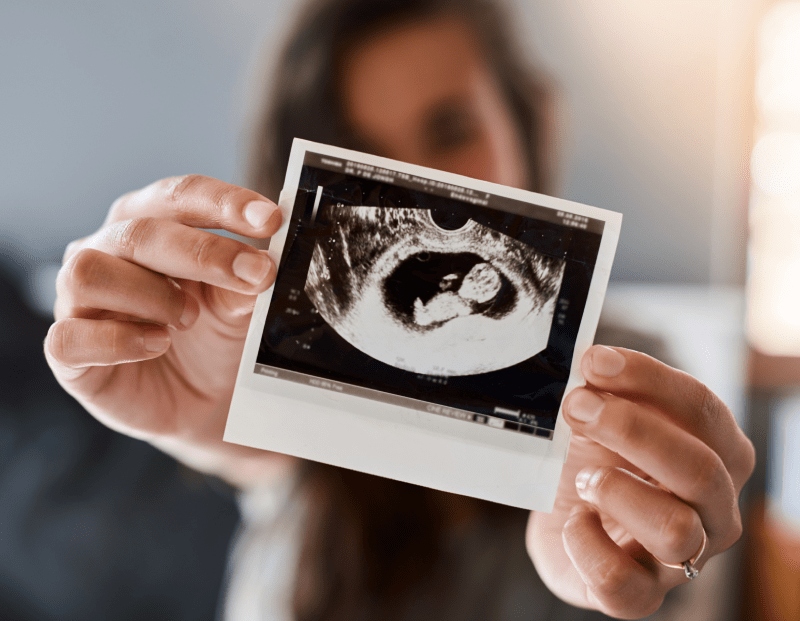
What Is The Role Of The Partner In Donation Treatment?
The partner’s role in donation treatment goes beyond providing a sperm sample; it is critical in terms of emotional and logistical support. The partner should be understanding of the expectant mother’s emotional fluctuations during the hormonal preparation process and should motivate her. They should take an active role in all decisions regarding the treatment and in travel planning. The solidarity and support between the couple in this challenging process are the most important factors that directly affect the success rate of the treatment and the psychological health of the expectant mother.
Is There A Waiting Period In Egg Donation?
The waiting period in egg donation treatment varies according to the width of the center’s donor pool and the couple’s donor criteria. In centers with a wide donor pool, such as Northern Cyprus, the waiting period is usually very short (a few weeks). However, this period may be extended if a donor with very rare physical characteristics or ethnic background is desired. The possibility of starting the treatment quickly is one of the reasons why donation is preferred abroad.
What Is The Difference Between IVF Treatment And Egg Donation?
IVF treatment is performed using the expectant mother’s own eggs, while pregnancy in egg donation treatment is achieved using the eggs of a young and healthy donor. IVF is suitable for women with sufficient ovarian reserve and suitable egg quality. Egg donation, on the other hand, is an option for women with depleted ovarian reserves or those carrying genetic risks. Egg donation offers a higher chance of pregnancy than IVF, especially for women over 40.
Is Psychological Support Necessary Before Donation Treatment?
Egg donation treatment can be psychologically challenging for couples due to the lack of a genetic link and the involvement of a long medical process. Therefore, receiving psychological support and counseling before treatment is highly beneficial. This support helps couples prepare emotionally for the process, manage their anxieties, and fully embrace the decision to use a donor egg. A healthy psychological state also positively affects the treatment success.
What Are The Health Criteria For The Expectant Mother For 50 Years Old Pregnancy?
The basic health criterion that the expectant mother must meet for a 50-year-old pregnancy is that her uterus is capable of carrying the pregnancy and that her general systemic health (heart, kidney, blood pressure) is not at a risky level. The candidate must undergo comprehensive cardiology, internal medicine, and gynecological examinations. In all these examinations, approval must be obtained that the pregnancy will not risk the mother’s life and will progress healthily.
When Can Normal Life Be Resumed After Treatment?
After embryo transfer, lying down and resting is usually recommended for the first 24 to 48 hours, but after this period, the mother-to-be can return to light activities and normal daily life. Activities such as strenuous exercise and heavy lifting should be avoided. During the 10-12 day waiting period after the transfer, excessive stress and physical fatigue should be avoided. This rest and waiting period helps increase the embryo’s chance of implanting in the uterus.
What Is The Chance Of Twin Pregnancy After Egg Donation?
The chance of twin pregnancy after egg donation depends on the number of embryos transferred. When more than one embryo is transferred to increase the chance of success, the risk of twin (or triplet) pregnancy also increases. Most centers recommend transferring one or two embryos due to high success rates. Since twin pregnancies can carry additional risks (premature birth, preeclampsia) for expectant mothers over 50, a detailed discussion with a specialist about the number of embryos to be transferred is critical.
How Should Travel Planning Be Done For Treatment?
Travel planning for egg donation treatment should be done according to the expectant mother’s hormonal preparation calendar. The mother-to-be should travel to the country where the treatment center is located approximately one week before the embryo transfer. It is important to get professional help to minimize the stress of travel and comfortably meet accommodation needs. You can contact Cure Holiday to arrange a comfortable and relaxing travel and accommodation package that aligns with your treatment dates. This makes it easier for you to focus on the treatment.
